Library Staff
Teacher librarian- Jade Ellis
About Ms. Ellis:
Ms. Ellis is a Secondary ELA teacher and Teacher librarian and holds a Master in English and a Master in Library and Information Science. She loves working with students personally to find books they love or complete assignments using library resources. She believes the best part of a library is not its books, but its people- inquisitive, interesting, and appreciative of a space centered on the pursuit of brain fun :)
About Ms. Ellis:
Ms. Ellis is a Secondary ELA teacher and Teacher librarian and holds a Master in English and a Master in Library and Information Science. She loves working with students personally to find books they love or complete assignments using library resources. She believes the best part of a library is not its books, but its people- inquisitive, interesting, and appreciative of a space centered on the pursuit of brain fun :)
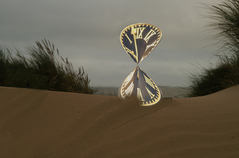
Library Hours
8:20-3:40
Closed one period a day for conference period.
Yes, we are OPEN at lunch!
8:20-3:40
Closed one period a day for conference period.
Yes, we are OPEN at lunch!

Library Fines
Although we charge for lost books, we do not charge overdue fines.
You may NOT check out a book if you have an overdue book.
We are flexible about lost books, so please speak to the librarian to make an arrangement that works for you if you lose a book.
Although we charge for lost books, we do not charge overdue fines.
You may NOT check out a book if you have an overdue book.
We are flexible about lost books, so please speak to the librarian to make an arrangement that works for you if you lose a book.
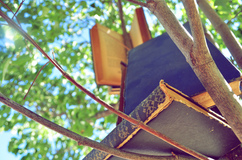
Our Library
Mission Statement: The Roosevelt High School library wants to support the Common Core learning standards in classroom instruction in order to teach students how to access,evaluate, and use information and integrate information & digital literacy skills into all areas of learning. We seek to create a nurturing, information-rich environment for the RHS community.
Mission Statement: The Roosevelt High School library wants to support the Common Core learning standards in classroom instruction in order to teach students how to access,evaluate, and use information and integrate information & digital literacy skills into all areas of learning. We seek to create a nurturing, information-rich environment for the RHS community.
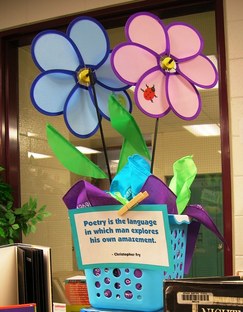
Our Vision
We strive to ensure that
- California will lead the nation in student achievement because all educational leaders Support Strong School Libraries.
- Students will be dynamic, critical, and ethical users of technology.
- Students will be enthusiastic users of libraries & life‐long readers and learners.
Expectations
We are guided in our practice by the California Model School Library Standards, which outline what students should know and be able to do to succeed in school, higher education, and the workforce.
These standards include the following:
1. Students access information
The student will access information by applying knowledge of the organization of libraries, print materials, digital media, and other sources.
2. Students evaluate information
The student will evaluate and analyze information to determine what is appropriate to address the scope of inquiry.
3. Students use information
The student will organize, synthesize, create, and communicate information.
4. Students integrate information literacy skills into all areas of learning
The student will independently pursue information to become a lifelong learner.
The library supports the goal of RHS students to meet the following Common Core Standards, among others, to support the integration of knowledge and ideas:
CCSS.ELA-LITERACY.RST.11-12.7
Integrate and evaluate multiple sources of information presented in diverse formats and media (e.g., quantitative data, video, multimedia) in order to address a question or solve a problem.
AND researching to build and present knowledge:
CCSS.ELA-LITERACY.WHST.11-12.7
Conduct short as well as more sustained research projects to answer a question (including a self-generated question) or solve a problem; narrow or broaden the inquiry when appropriate; synthesize multiple sources on the subject, demonstrating understanding of the subject under investigation.
CCSS.ELA-LITERACY.WHST.11-12.8
Gather relevant information from multiple authoritative print and digital sources, using advanced searches effectively; assess the strengths and limitations of each source in terms of the specific task, purpose, and audience; integrate information into the text selectively to maintain the flow of ideas, avoiding plagiarism and overreliance on any one source and following a standard format for citation.
CCSS.ELA-LITERACY.WHST.11-12.9
Draw evidence from informational texts to support analysis, reflection, and research.
We also acknowledge the importance of the American Association of School Librarian's Standards for the 21st-Century Learner, and the common beliefs that underlie them:
These standards include the following:
1. Students access information
The student will access information by applying knowledge of the organization of libraries, print materials, digital media, and other sources.
2. Students evaluate information
The student will evaluate and analyze information to determine what is appropriate to address the scope of inquiry.
3. Students use information
The student will organize, synthesize, create, and communicate information.
4. Students integrate information literacy skills into all areas of learning
The student will independently pursue information to become a lifelong learner.
The library supports the goal of RHS students to meet the following Common Core Standards, among others, to support the integration of knowledge and ideas:
CCSS.ELA-LITERACY.RST.11-12.7
Integrate and evaluate multiple sources of information presented in diverse formats and media (e.g., quantitative data, video, multimedia) in order to address a question or solve a problem.
AND researching to build and present knowledge:
CCSS.ELA-LITERACY.WHST.11-12.7
Conduct short as well as more sustained research projects to answer a question (including a self-generated question) or solve a problem; narrow or broaden the inquiry when appropriate; synthesize multiple sources on the subject, demonstrating understanding of the subject under investigation.
CCSS.ELA-LITERACY.WHST.11-12.8
Gather relevant information from multiple authoritative print and digital sources, using advanced searches effectively; assess the strengths and limitations of each source in terms of the specific task, purpose, and audience; integrate information into the text selectively to maintain the flow of ideas, avoiding plagiarism and overreliance on any one source and following a standard format for citation.
CCSS.ELA-LITERACY.WHST.11-12.9
Draw evidence from informational texts to support analysis, reflection, and research.
We also acknowledge the importance of the American Association of School Librarian's Standards for the 21st-Century Learner, and the common beliefs that underlie them:
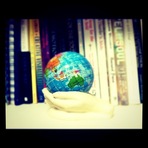
Reading is a window to the world.
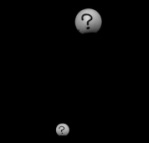
Inquiry provides a framework for learning.
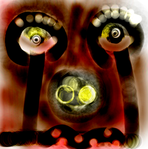
Ethical behavior in the use of information must be taught.

Technology skills are crucial for future employment needs.
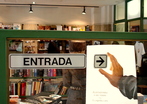
Equitable access is a key component for education.
